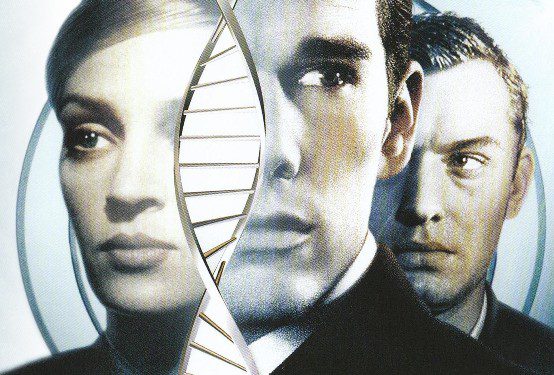Did the Supreme Court Just Send Us to a Gattaca Future?

On Monday, the Supreme Court announced a 5-to-4 decision upholding the prerogative of the state to compel DNA samples of anyone arrested for a “serious crime.” The Anthony Kennedy majority decision (joined by Justices Roberts, Thomas, Breyer, and Alito) saw DNA samples as simply another method of identification in line with fingerprinting, and the cheek swab to be minimally intrusive, in any case outweighed by the state’s interest in identifying the person they have taken into custody. Justice Scalia wrote the dissent joined by liberal justices Ginsburg, Kagan, and Sotomayor, arguing that this was in fact a substantial shift in allowing scientific evidence to be compelled without a warrant for the de facto sole purpose of solving crimes.
Noah Feldman of Harvard Law argues that “The day that DNA cheek swabs officially became the new fingerprints deserves to be marked and remembered….because it represents a major step toward a ‘Gattaca‘ world.” “Gattaca,” for those unfamiliar, was a late ’90s science fiction film starring Ethan Hawke and Uma Thurman that depicted a near future where genome was destiny, and everything from potential jobs to prospective mates were determined by the robustness of your genetic code. To give their children the best shot at life, parents chose from a variety of their best embryos while alternately knocking out and splicing in desirable attributes. Genetics came to so dominate the culture that policework was reduced to vacuum cleaners, sifting through discarded skin and hair cells to find who didn’t belong, and faces no longer even registered as long as the DNA ID checked out.
For Feldman, the road to Gattaca is being paved because this Supreme Court decision “means that evidence of a crime can be collected without any particular suspicion, avoiding the pesky requirement of a warrant that the Founding Fathers thought would give us liberty and privacy.” I will certainly defer to Professor Feldman on analysis of the Court’s opinion, and I am quite sympathetic to Justice Scalia’s dissent when he says “I doubt that the proud men who wrote the charter of our liberties would have been so eager to open their mouths for royal inspection.”
The risk of a “Gattaca world,” however, lies not so much in the constitutional questions as the scientific and procedural. What is so chilling in the movie “Gattaca” is the unquestioning faith that the entire society has in a deterministic understanding of genetics; the routinized provision of cheek swabs and finger pokes is but one of many derivative effects from this.
A deterministic genetics where amino acid order proceeds to protein proceeds to everything we can and will be has been the operating assumption of many scientists going back decades, as it accords with their preference for a universe whose causal chains can be neatly laid out and understood. However, the science has not been kind to these scientists, as we are beginning to understand that gene expression does not proceed simply in one direction, but rather is responsive to the environmental context (for an excellent breakdown of this, see Steve Talbott’s “Getting Over the Code Delusion“). Thus for most complex human traits, the genome can give at most percentages, suggestions of the likelihood of a trait, not the “full blueprint” Feldman fears is being searched. This is even known in “Gattaca” as at the main character’s birth, his finger is pricked and a whole series of probabilities are listed off for his future, including his life expectancy. However, because the culture has fetishized the genetic code into an inerrant prophecy, children are treated into adulthood in accordance with the expectations of their DNA. By the time they are giving samples to the police on command, they don’t give it a second thought because it is exactly how they have been conducting their entire life.
As Feldman and Scalia point out, taking DNA samples only makes sense at the moment to solve a crime, as it takes far too long to be effective as the bureaucratic identifier the Court’s majority defended it as. Even as a crime solver, however, the risks of fetishization remain. According to SCOTUSblog, this case originally stemmed from a man being booked for assault when his compelled cheek swab matched his DNA to an unsolved, six-year-old rape case. He was summarily tried and convicted of the new crime without any other evidence tying him to it. However, the past several years have seen a series of scandals involving major crime labs where improper or sloppy procedures threw hundreds to thousands of cases into doubt, and the sheen of CSI has been rubbed off by the crude realities of human life.
If we continue to ignore the always present human element, and treat DNA as an impartial God, infallibly accusing, we may just get to Gattaca after all.
Comments